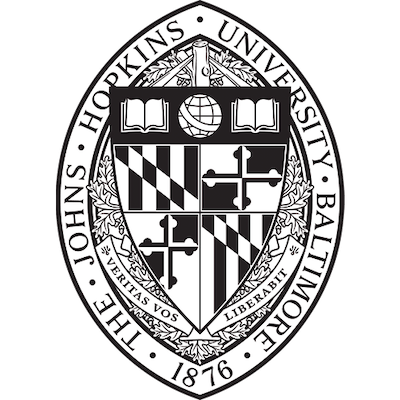
Johns Hopkins asks for only a single supplemental essay, which means you must make the best possible use of the space you are given. Also, if you address the school by name in your essay, make sure not to forget the first s, as it shows a lack of attention to detail if you address “John Hopkins” in your essay.
Write a brief essay (300-400 words) in which you respond to the following question.
Successful students at Johns Hopkins make the biggest impact by collaborating with others, including peers, mentors, and professors. Talk about a time, in or outside the classroom, when you worked with others and what you learned from the experience.

My genetics course helped me get acquainted with some fascinating friends—heterochromatin, poly(A) tails, genes, hairpin loops, proteins, and of course, DNA and RNA. That class sparked a passion for understanding the mechanisms that made my new friends tick and how their dispositions changed our lives.
Guided by my mentor, Dr. Sanjay Bidichandani, I now conduct graduate-level research at the University of Oklahoma Health Sciences Center on the neurodegenerative disease Friedreich Ataxia (FA). By growing my own cell culture using FA patient cells, assisting with bisulfite conversion (a process which changes the chemical makeup of DNA), and helping with polymerase chain reactions (a lab technique used to amplify a gene), I learned techniques that help me ask new, better questions. Participating in these activities with my macromolecular friends, I envisioned a future in science where I could both have fun and make a positive difference in the world. Then, I made a mistake.
After my first experiment went awry—I should have taken extra steps against cross-contamination—I was terrified to admit my error to the team. I never would have guessed that I was actually going through a rite of passage for every scientist. I was stunned when a senior researcher beat me to the punch at our weekly lab meetings, discussing the protocol she should have followed and telling us that she made the same error. The small moment changed my perspective; I began to see research not only as living up to expectations, but as discovering new and improved techniques. All of a sudden, what felt like a risk now felt like an opportunity.
Resources were abundant, but what made the difference was a paradigm shift: beginning research afraid of mistakes, I finished with the Zen acceptance that these mistakes were an opportunity to self-correct. This taught me about teamwork as well. I now see that the best teams are the most transparent ones, whose members overcome the awkwardness of admitting their own mistakes and freely share their learning experiences.
It is with this knowledge that I embark on my journey to making a difference in the world through new discoveries in the field I love—more specifically, investigating the cultural implications of genetic issues in neuroscience and mental health. I’ve expanded my friend group. Now, it includes DNA methyltransferase, CpG islands, and Dr. Bidichandani and his team.
In hindsight, though wanting to hide one’s mistakes is natural, it is embracing the errors and collaborating on problem-solving—just like my senior researcher—that strengthens us as a team.

This is a very open-ended prompt, which means you can highlight whichever values or experiences you think are your best qualities. Collaboration with others, working as a team towards a common end, should be the main thread of the essay, but the end goal of the collaboration, and the lessons you learn along the way, are unique to you.
This essay does not need to strictly be about academic collaboration either. If you worked with a group and accomplished something impressive in a non-academic extracurricular, that may be worth writing about. You only have the one essay, so you want to dive into whatever is most impressive about you and your accomplishments. Make sure you don’t cover the same ground as the personal statement, as you want to give admissions officers the most complete picture of you possible.
In the example above, the author discusses one of their extracurriculars, working in a laboratory setting with experts. This is impressive in its own right, and the collaboration towards shared research goals is clear. The most important part of the essay, however, is the lessons the author learns from the collaboration. Learning that making mistakes is part of the process of discovery, and also the proper mindset to go into research with. This transformation of perspective shows how the author matured through their experience, and became a better researcher by doing so.
While your own collaboration does not need to cover these same values and lessons, you should still strive to include some of your values in this essay, along with what lessons you have learned from collaboration. Merely recounting events as they happened will not tell admissions officers enough. Instead, try to show them who you are as a person and scholar, through a story of how you worked with, learned from, or taught others.

Ivy Scholars is the leading educational consultant in Sugar Land, Texas, providing admissions coaching, test prep, and more to help students enroll at top tier schools.

Call us now: +1 (281) 215-5148
.
Get expert tips, admissions updates, and resources delivered straight to your inbox.


